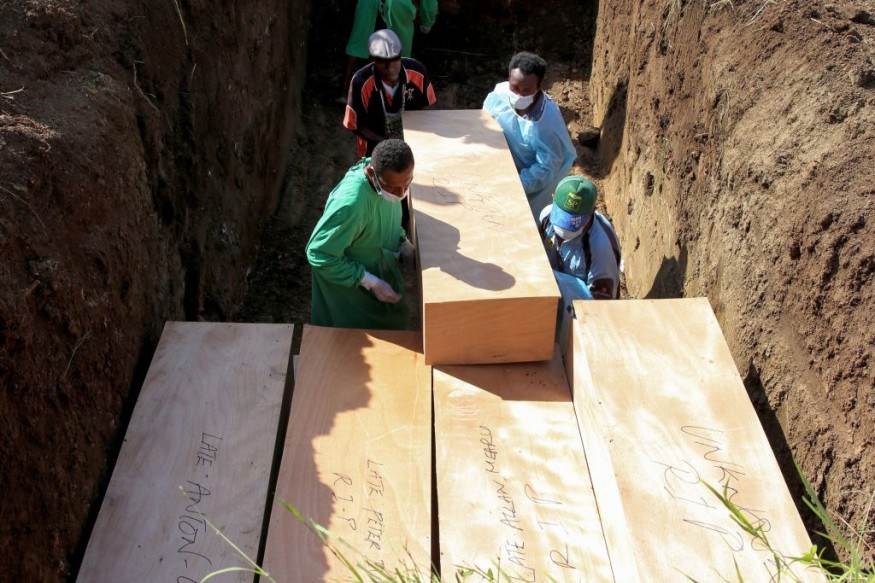Experts have warned that Papua New Guinea might become the next breeding ground for future COVID-19 variants that will sweep the world due to low vaccination rates. The country is Australia's closest neighbor, with only 2.5 miles (4 kilometers) distance from the Australian territory of Torres Strait.
They worry that new variants would emerge and easily spread from Papua New Guinea to Australia because of their proximity. As of now, the former's COVID-19 cases are still alarmingly high due to the Delta variant, and experts are concerned that travelers from the country could bring the virus to Australia.

Coffins are placed in a mass grave at 9 Mile Cemetery in Port Moresby on December 8, 2021, as Papua New Guinea carried out the first in a series of mass Covid-19 burials interring 54 people whose remains have lain unclaimed for months as the pandemic ravaged the under-resourced Melanesian nation. (Photo by Andrew KUTAN / AFP) (Photo by ANDREW KUTAN/AFP via Getty Images)
Papua New Guinea Potential Breeding for New COVID-19 Variants
The Australian Red Cross head of international humanitarian programs, Adrian Prouse said that low vaccination rates in Papua New Guinea could make the country the next place where new variants of COVID-19 emerge, The Guardian reported.
Until now, only less than 5% of the adult population has been vaccinated compared to Indonesia who already vaccinated one-third of its population. Papua New Guinea and Indonesia are Australia's nearest neighbors that face significant challenges in vaccinating their people.
Epidemiologist Stefanie Vaccher from the Buret Institute has echoed this concern ad said that populations with low vaccination rates create more opportunities for the virus to spread and mutate. Vaccher added that the Australian government and its people should care not only for what this will mean for their country but to genuinely care for the spread of the virus in Papua New Guinea.
No matter which country the variant emerges, the world should actively care because each has a responsibility to think globally. The COVID-19 only revealed how the world is interconnected and its importance in assessing viral transmission. The suffering in these countries due to the pandemic and their lives are equally important as anyone else, Vaccher said.
ALSO READ: Lessons From COVID-19 Must Not Be Wasted: Vaccine Creator Warns Future Pandemics Will Be Worse
Papua New Guinea Held Its First in a Series of Mass Burial
Recently, Papua New Guinea held its first in a series of mass burials for COVID-19 victims. News outlet France 24 reported that the event buried around 54 people whose remains were unclaimed for months as the COVID-19 pandemic ravaged the under-resourced country.
The event took place after hospital and government officials ordered the burial of the bodies when 300 of them piled up at Port Moresby General Hospital morgue from its original capacity of only 60. Some of the bodies stored were already there since March, and authorities continue to locate their families and secure funding for the bodies' last rites.
The bodies were buried at Nine Mile Cemetery, just outside the capital Port Moresby. There were no families allowed during the ceremony, which is unusual for the country's culture in which burial services called "Haus Krais" span for days.
Attendees and officials all wore face masks as the makeshift coffins were carefully removed from shipping containers and stacked on top of each other like Jenga blocks in a 13-foot (4-meter) deep trench. Officials said that among the 300 bodies, about '122 of them died due to COVID-19.
RELATED ARTICLE : COVID-19 Omicron Variant May Dominate Planet in 3-6 Months After Spreading in South Africa
Check out more news and information on COVID-19 in Science Times.
© 2026 ScienceTimes.com All rights reserved. Do not reproduce without permission. The window to the world of Science Times.










